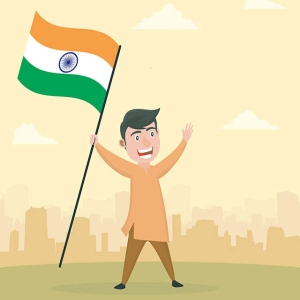
.png) Dr Suresh Mathew
Dr Suresh Mathew
.jpg)
In one of his addresses to the youth, Pope Francis, unlike the pious words he utters as the head of the Catholic church, did some plain-speaking. He threw a challenge to the hundreds of thousands of young people who had gathered to listen to him in a Polish city: Stop being ‘couch potatoes’ who withdraw themselves to a world of video games and computer screens; get into activism and politics to create a more just world.
He further poured out his mind without mincing words: “Dear young people, we didn't come into this world to ‘vegetate’, to take it easy, to make our lives a comfortable sofa to fall asleep on. No, we came for another reason: To leave a mark.”
On another occasion, the Pope himself showed them the way to move forward asking them to involve in politics because their participation can contribute to a “better politics” and it will promote fraternity in place of confrontation.
But the youth today seems recalcitrant to join the plethora of people who dot the political horizon. Experts point out several reasons for this inertia among the youth. Most remarkably, above average and bright young people, with commitment and good character, think that politics is not their cup of tea.
There could be several reasons for this repulsion among them towards politics. Their prime concern is to get a job and ensure their future with good income. Politics does not seem to charm them as it might not give them a comfortable life through genuine means. This is exemplified by the fact that India, the largest democratic country in the world, has hardly 12 per cent Members of Parliament below 40 years of age. The same is true with State Assemblies too.
The youth participation in politics is very low. The youth do not see a future in the choppy waters of politics where nepotism, back-stabbing and groupism thrive. The politicians cannot wash their hands of creating such an image among the young people.
There could be other reasons also for the young people staying away from playing an active role in political activities. The trend among the educated youth is to look for greener pastures abroad. This is especially true of Christian youth who have been benefited from the educational institutions run by the community. Yet another reason could be that the youth do not see many inspiring personalities in politics whose footprints they can follow. The political leaders of yesteryears, through their practice and preaching, had impressed the youth enormously.
But, in a country which is becoming younger by the day, it goes without saying that the youth have to play a much bigger role to make it more livable and democratic. The nation needs a new young generation, with deep-rooted human and civic values to take it forward. If many of them cannot don the mantle of active politicians, still they can play a role in improving the governance of the country.
It could be by way of creating awareness on the need to take part in elections, asking questions on the mismanagement by the local bodies, participating in protests against rights violations, etc. The youth could be role models for the general public on all these matters. The US Vice-President Kamala Harris has the right advise: “Young people need to realize that their voice and vote are powerful tools for political change.”